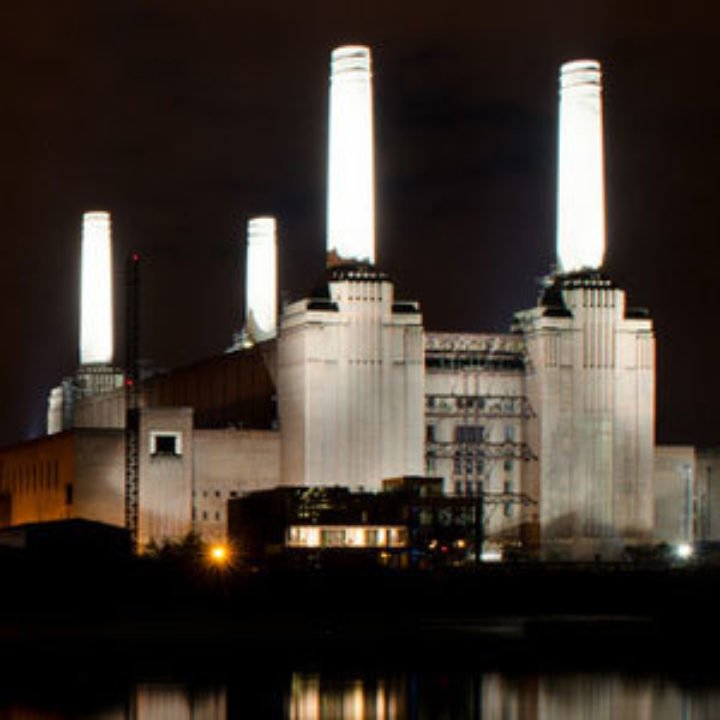'Affordable energy': What's that?
A phrase with real meaning - or just a seductive one?
By Richard Black
Share
Last updated:
Richard Black, ECIU Director
Two of Britain’s top papers took rather different perspectives on energy prices either side of the weekend. The Daily Mail said on Monday that ‘millions of households are being ripped off by the big energy firms’, noting that while wholesale gas prices have fallen markedly this year, savings are not in general being passed on to customers.
Late last week, however, The Times gave space to Centrica Chief Executive Sam Laidlaw to argue that big companies, working in a deregulated market, have given Britons cheap energy for a sustained period and will continue to do so as long as they remain relatively free from regulation.

Energy prices and energy bills are a Byzantine business. The wholesale price of gas is both the single largest component of household energy bills and the biggest reason why they have risen over the last three years.
Social and environmental levies both increase bills and decrease them (by paying for energy efficiency improvements).
Then there are company profits. As the Energy and Climate Change Select Committee concluded earlier this year, deciphering companies’ profits is made tougher by the fact that all of Britain’s ‘big six’ or their parent companies generate electricity as well as selling energy on the retail market.
What caught my eye in Sam Laidlaw’s article was a reference to ‘lack of affordability’ in the way that the UK’s energy sector is being steered towards decarbonisation.
‘At Centrica, we have been examining different options for cutting carbon emissions in the most cost-effective way, and recently we published our findings in our Energy Choices for the UK report,’ he writes.
‘This shows clearly that, by focusing on the lowest-cost, least-regret options and avoiding overlapping targets, the same decarbonisation outcome could be delivered at a substantially lower cost for customers.’
A priority in Energy Choices for the UK is a transition from coal to gas. Centrica is of course heavily invested in British gas industry – production, business supply, storage, ownership of seven gas-fired power stations and the biggest provider of retail gas to British households.
Everything is affordable - apparently
I’ve seen the phrase ‘affordable energy', or 'energy affordability', in a lot of places recently. But what exactly does it mean – or what is it being used to mean? After all, energy companies by definition make energy more or less affordable for their customers by adjusting their profit margin.
Dick Warburton, the Australian businessman appointed to review the country’s renewable energy policy, recently cited the need for ‘affordable energy’ in recommending that the government either scrap or downgrade support for renewables.

In the US, Representative Ed Whitfield from the coal-rich state of Kentucky pressed the button twice in one paragraph, saying that the Obama administration ‘…wants to restrict access to coal and other sources of affordable energy… We are blessed with abundant resources to provide jobs and affordable energy to all Americans…’
On the other hand, ‘affordable energy’ is also used as a justification by advocates of nuclear energy, energy efficiency, combined heat and power and renewables.
So is ‘affordable’ one of those adjectives that public relations professionals use flexibly, in the same way that beer is always natural, skin always smooth and groceries always value-for-money?
Well – yes and no. ‘Affordability’ clearly is a meaningful word; but its meaning changes depending on your horizons of time and space. Now, or over time? For the individual, the community or the country?
On an instant and individual basis, my most affordable fuel is firewood, given that I can pick some up for free in my local park. But certainly in London, that doesn’t form the foundation of a sensible energy policy.
On an industrial scale, coal is clearly a cheap option in the short term. But to luxuriate in its immediate affordability is to ignore its wider economic impacts, on air quality and climate change. Furthermore, investment in emerging technologies supports innovation, reducing costs and thus increasing affordability down the line, as we are now seeing rather spectacularly with solar energy.
In the UK context, energy could be made instantly more affordable for the citizen by cutting levies that support energy efficiency improvements. But that would mean energy becoming less affordable in subsequent years, because the energy efficiency improvements would not happen.
Cutting levies that support renewable energy would also reduce bills instantly. But that would mean a slower low-carbon transition in the energy sector, and therefore a faster transition in other sectors of the economy in order to stay within carbon budgets - which might make goods and services in those sectors, such as transport and food, less affordable.
So ‘affordability’ is a flexible term. It means different things in the mouths of different people - which puts the onus squarely on the reader to decode each message and work out what it really means, rather than just taking claims of affordability at face value.
Share